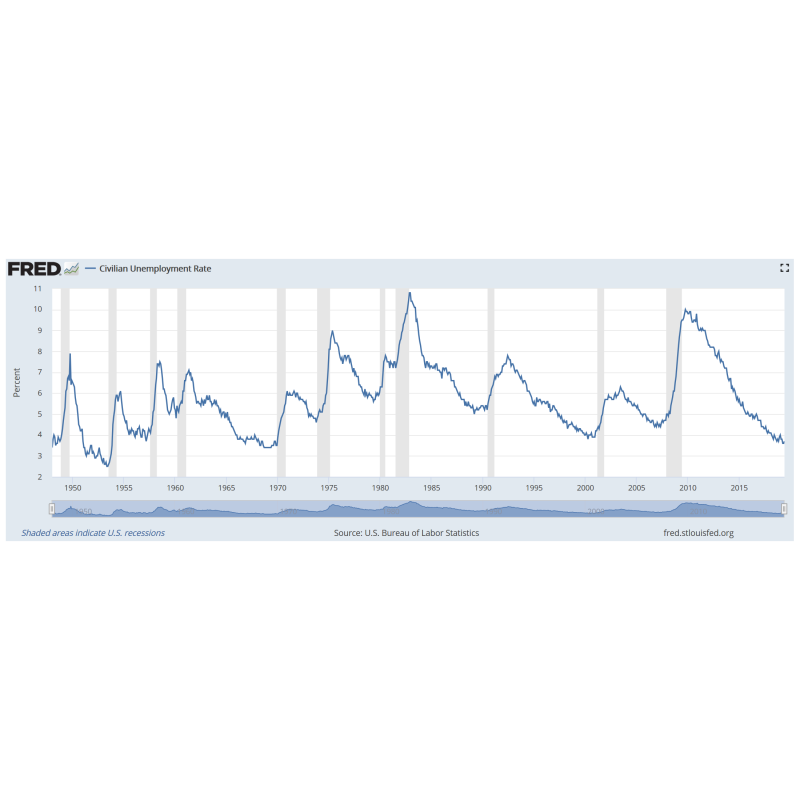Deficit Man and the 2020 Election




Traders at work at the New York Stock Exchange on July 10, when the S&P 500 set a record high.
Spencer Platt/Getty Images
On one side, Donald Trump wastes no opportunity to remind us how awful he is. His latest foray into overt racism delights his base but repels everyone else . On the other side, he presides over an economy in which unemployment is very low and real G.D.P. grew 3.2 percent over the past year.
But the election won’t be tomorrow, it will be an exhausting 15 months from now. Trump’s character won’t change, except possibly for the worse. But the economy might look significantly different.
So let’s talk about the Trump economy.
The first thing you need to know is that the Trump tax cut caused a huge rise in the budget deficit, which the administration expects to hit $1 trillion this year, up from less than $600 billion in 2016. This tidal wave of red ink is even more extraordinary than it looks, because it has taken place despite falling unemployment, which usually leads to a falling deficit.
Strange to say, none of the Republicans who warned of a debt apocalypse under President Barack Obama have protested the Trump deficits. (Should we put Paul Ryan’s face on milk cartons?) For that matter, even the centrists who obsessed over federal debt during the Obama years have been pretty quiet. Clearly, deficits only matter when there’s a Democrat in the White House.
Oh, and the imminent fiscal crisis people like Erskine Bowles used to warn about keeps not happening: Long-term interest rates remain very low.
Now, the evidence on the effects of deficit spending is clear: It gives the economy a short-run boost , even when we’re already close to full employment. If anything, the growth bump under Trump has been smaller than you might have expected given the deficit surge, perhaps because the tax cut was so badly designed, perhaps because Trump’s trade wars have deterred business spending.
For now, however, Deficit Man is beating Tariff Man. As I said, we’ve seen good growth over the past year.
But the tax cut was supposed to be more than a short-run Keynesian stimulus. It was sold as something that would greatly improve the economy’s long-run performance; in particular, lower corporate tax rates were supposed to lead to a huge boom in business investment that would, among other things, lead to sharply higher wages. And this big rise in long-run growth would supposedly create a boom in tax revenues, offsetting the upfront cost of tax cuts.
None of this is happening. Corporations are getting to keep a lot more of their profits, but they’ve been using the money to buy back their own stock, not raise investment . Wages are rising, but not at an extraordinary pace , and many Americans don’t feel that they’re sharing in the benefits of a growing economy.
And this is probably as good as it gets.
I’m not forecasting a recession. It could happen, and we’re very badly positioned to respond if it does, but the more likely story is just a slowdown as the effects of the deficit splurge wear off. In fact, if you believe the “nowcasters” (economists who try to get an early read on the economy from partial data), that slowdown is already happening. For example, the Federal Reserve Bank of New York believes that the economy’s growth was down to 1.5 percent in the second quarter.
And it’s hard to see where another economic bump can come from. With Democrats controlling the House, there won’t be another big tax cut. The Fed may cut interest rates, but those cuts are already priced into long-term interest rates, which are what matter for spending, and the economy seems to be slowing anyway.
Which brings us back to the 2020 election.
Political scientists have carried out many studies of the electoral impact of the economy, and as far as I know they all agree that what matters is the trend, not the level . The unemployment rate was still over 7 percent when Ronald Reagan won his 1984 landslide; it was 7.7 percent when Obama won in 2012. In both cases, however, things were clearly getting better.
That’s probably not going to be the story next year. If we don’t have a recession, unemployment will still be low. But economic growth will probably be meh at best — which means, if past experience is any guide, that the economy won’t give Trump much of a boost, that it will be more or less a neutral factor.
And on the other hand, Trump’s awfulness will remain.
Republicans will, of course, portray the Democratic nominee — whoever she or he may be — as a radical socialist poised to throw the border open to hordes of brown-skinned rapists. And one has to admit that this strategy might work, although it failed last year in the midterms. To be honest, I’m more worried about the effects of sexism if the nominee is a woman — not just the sexism of voters, but that of the news media, which still holds women to different standards.
But as far as the economy goes, the odds are that Trump’s deficit-fueled bump came too soon to do him much political good.



Please read the seed before Commenting. Please cite the passage in the seed on which you are Commenting, in order to observe that your Comment is on-topic. Thank you.